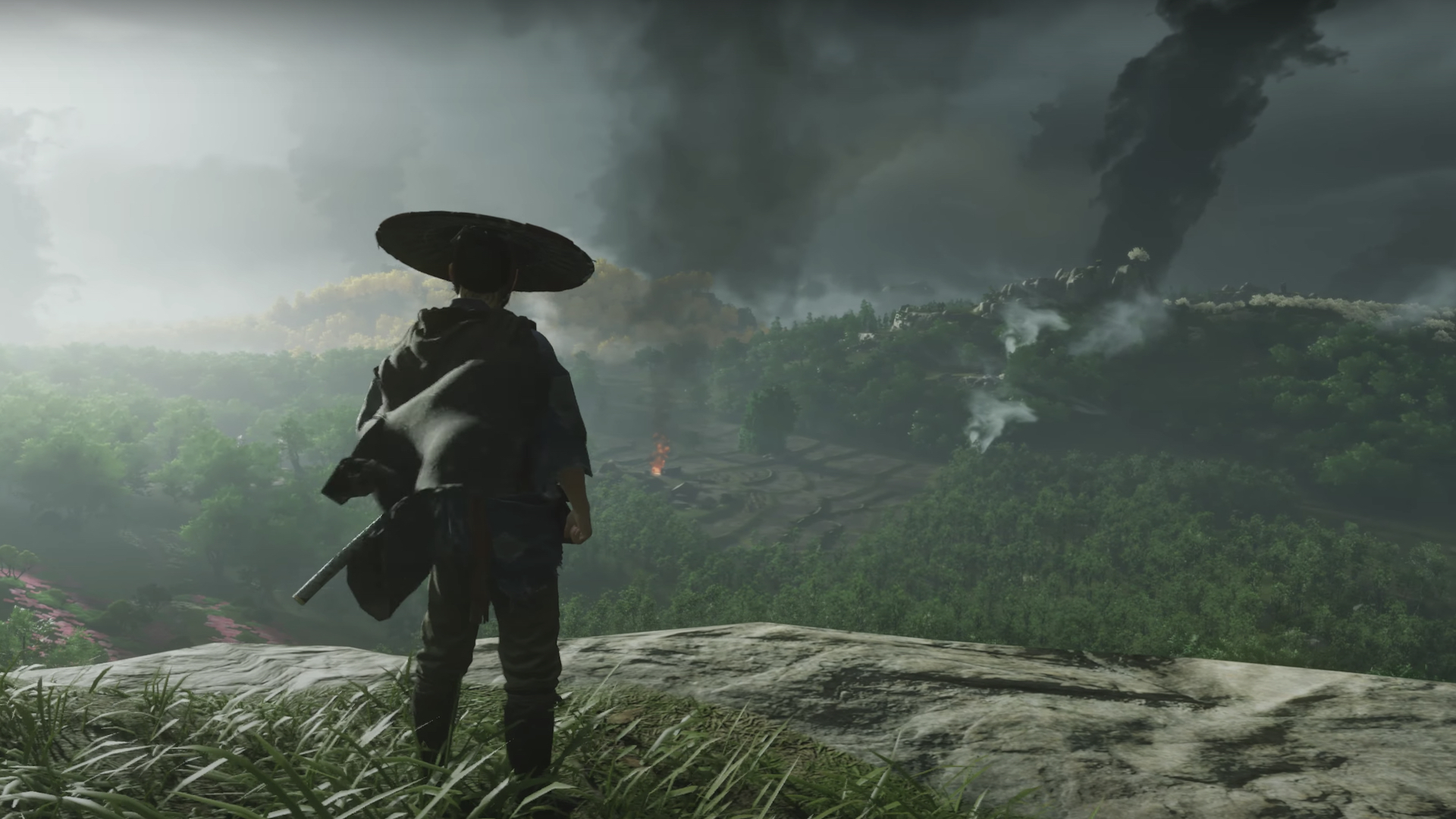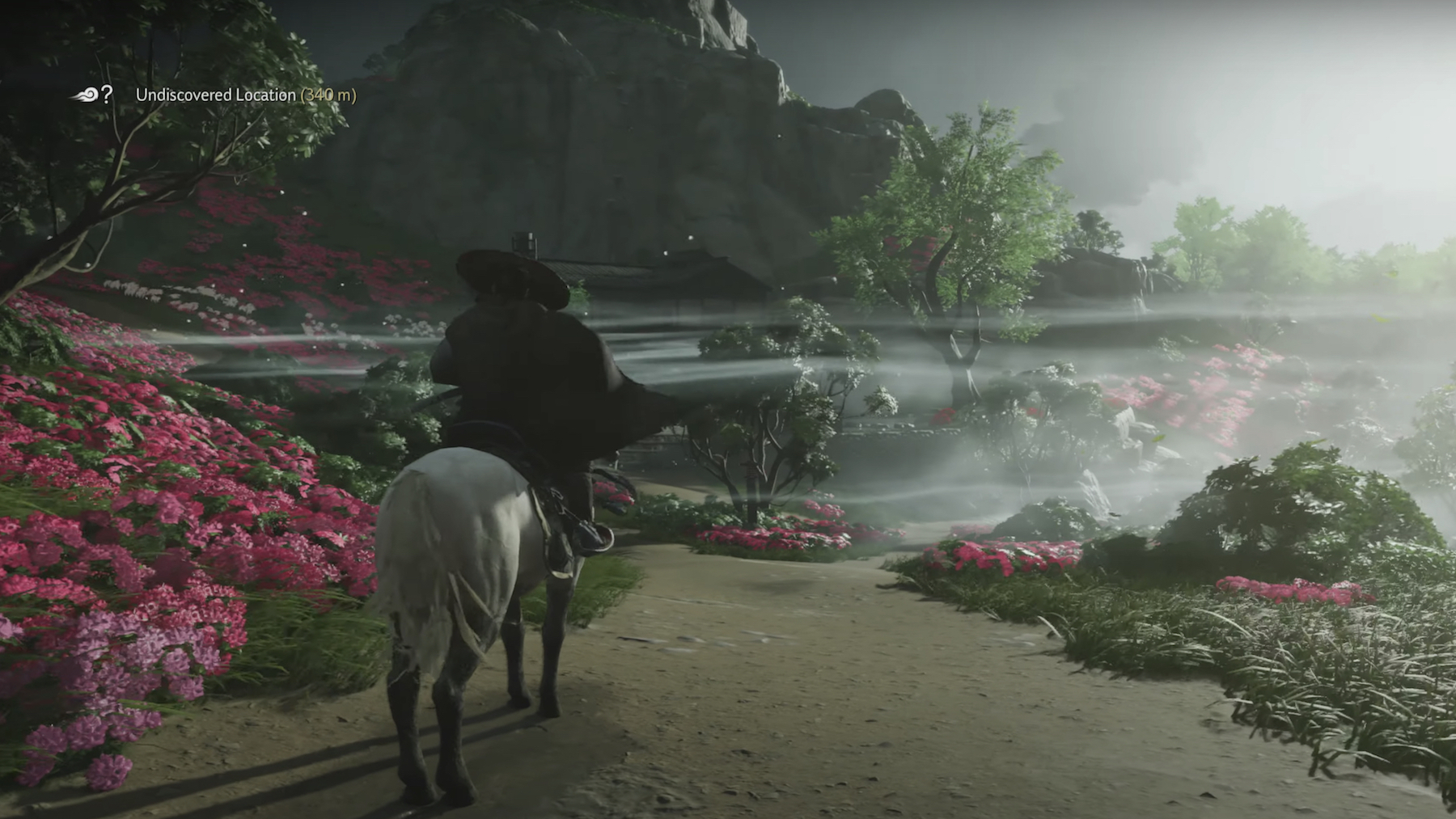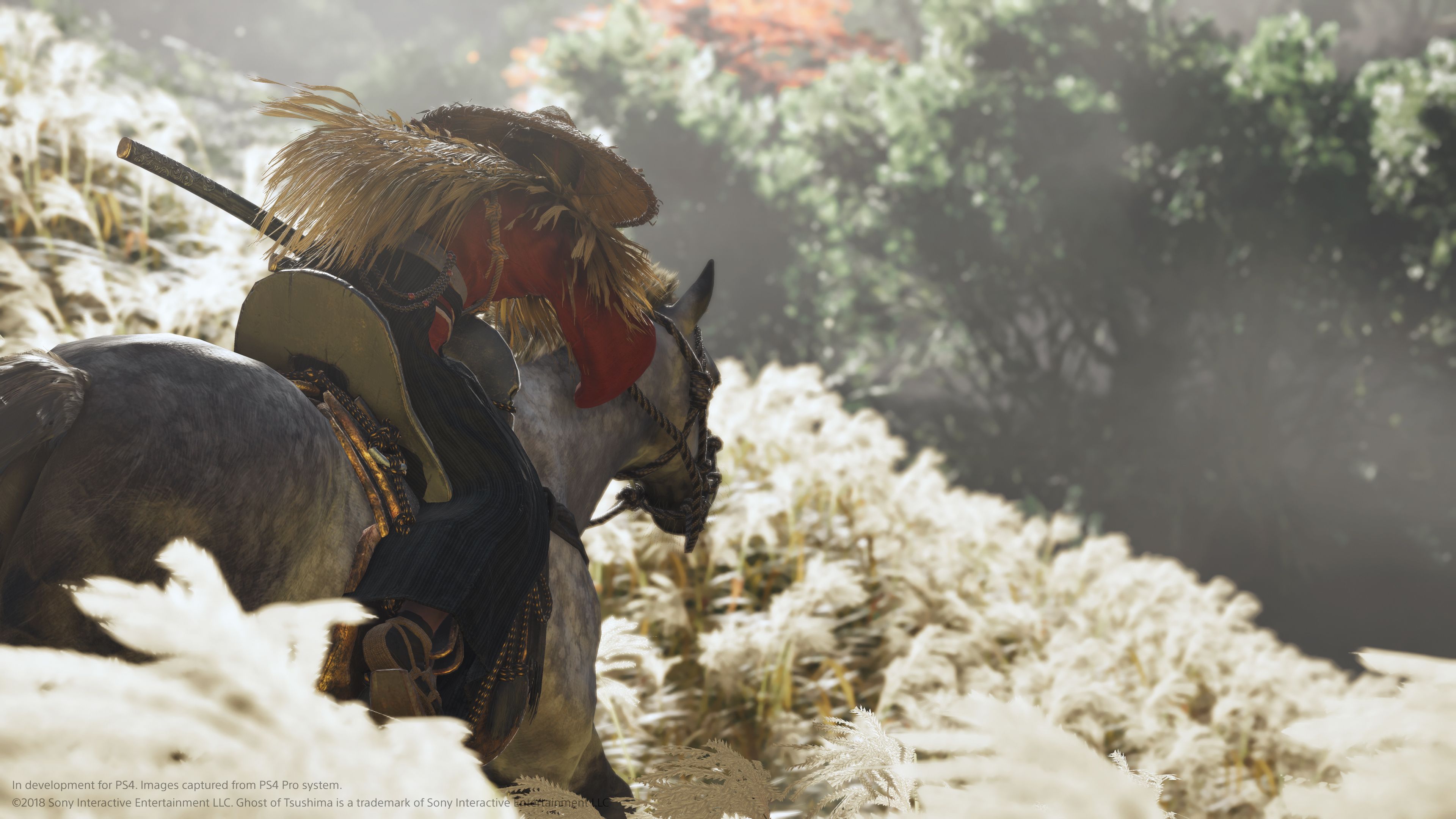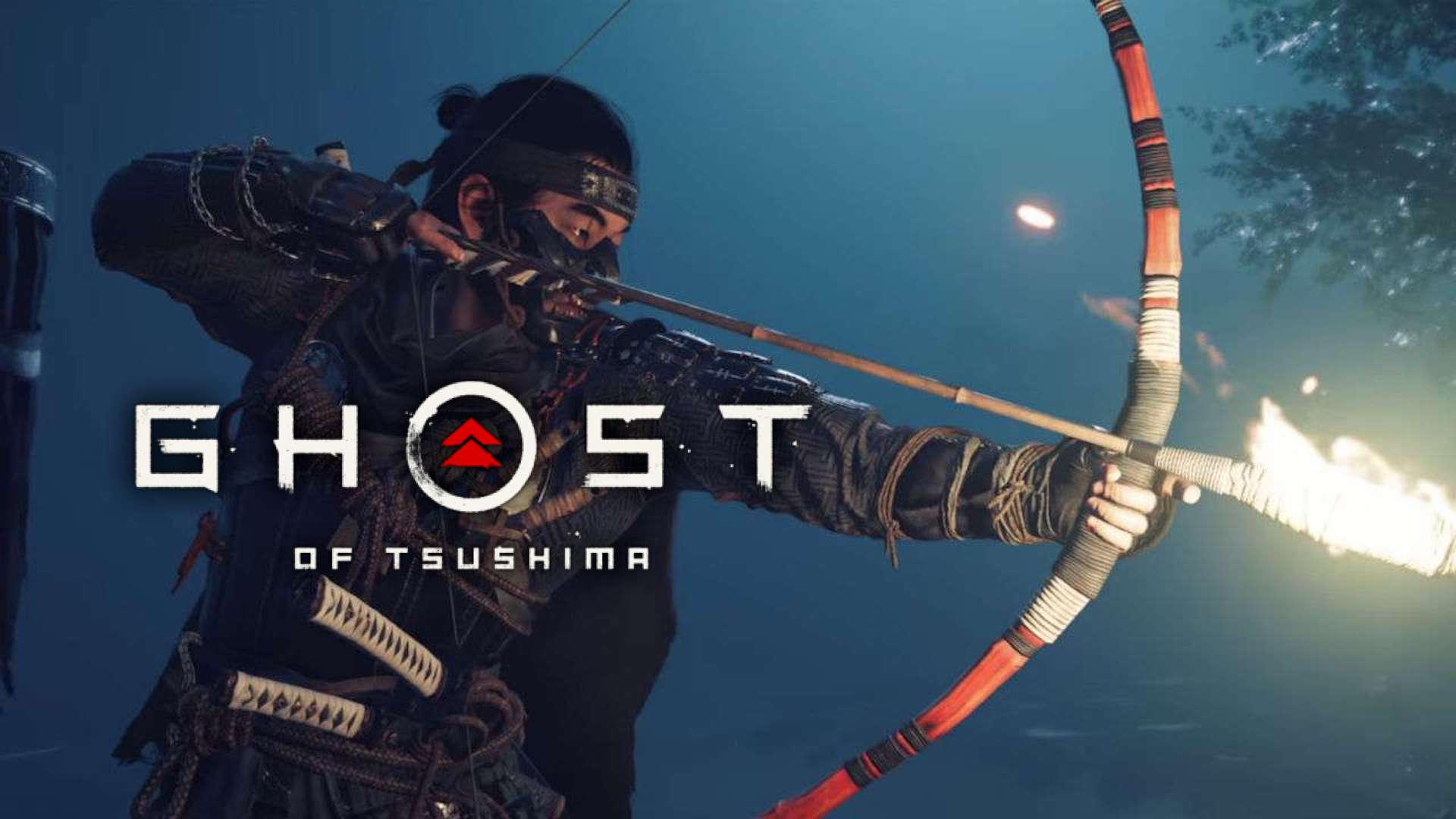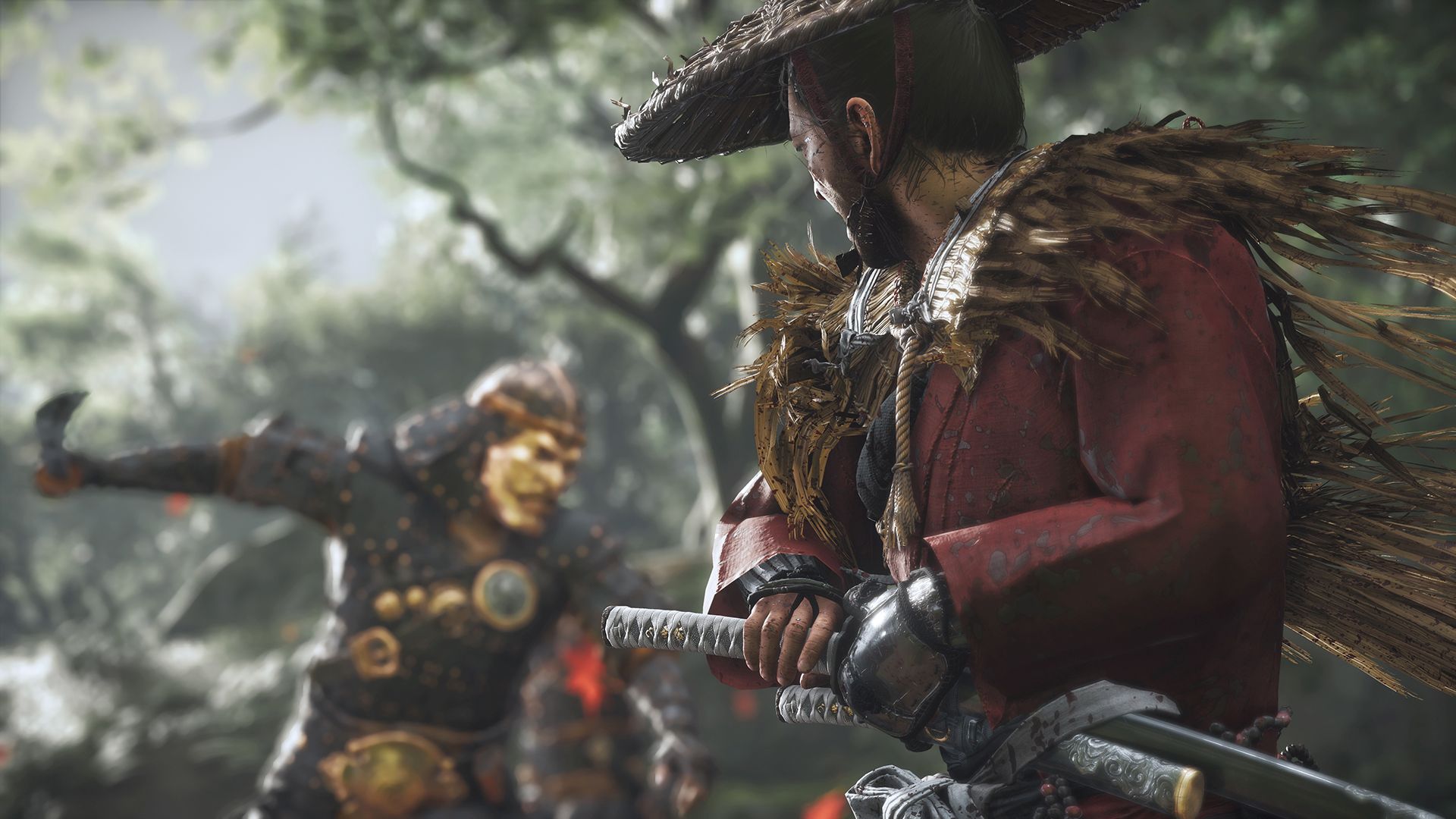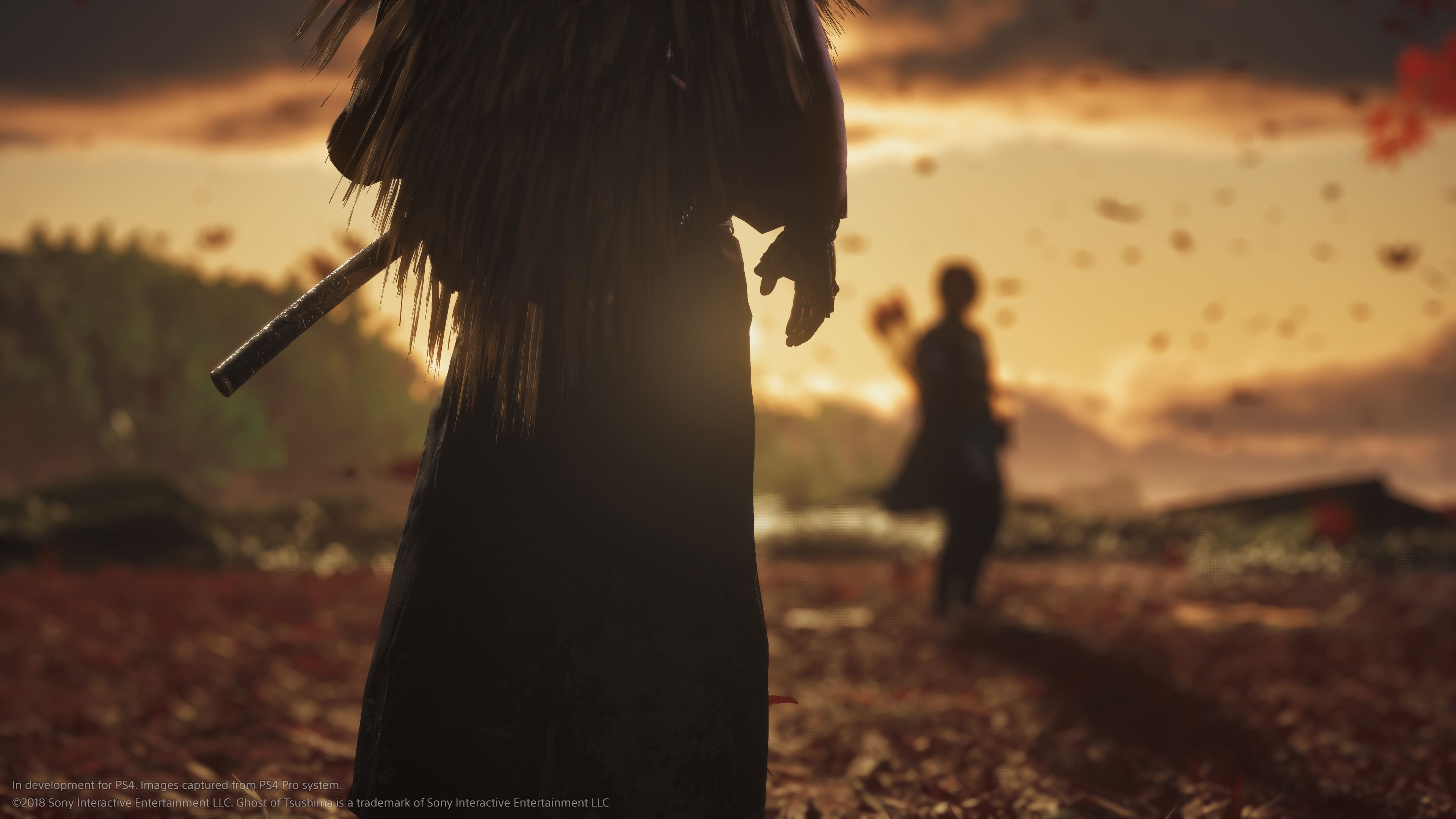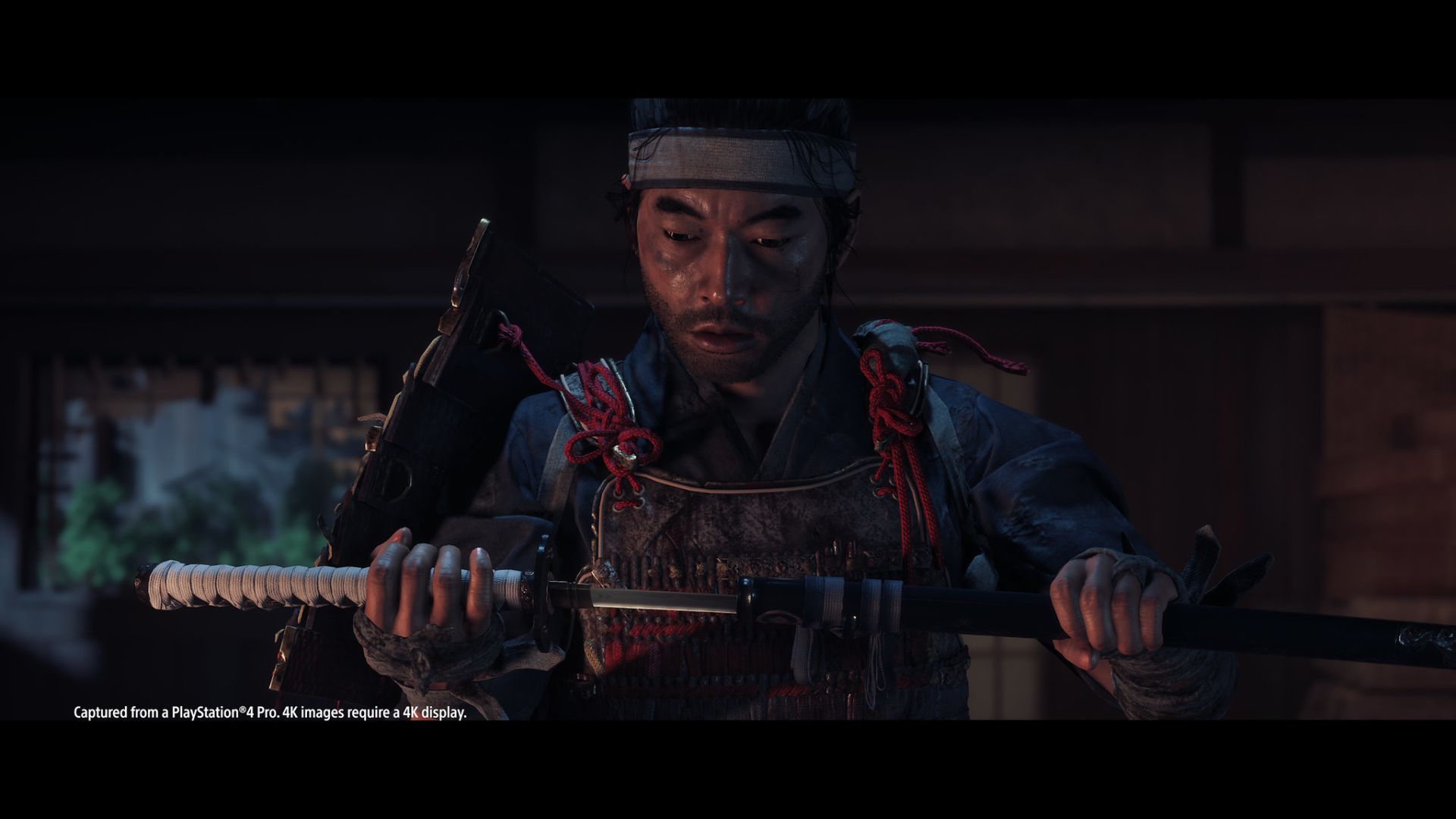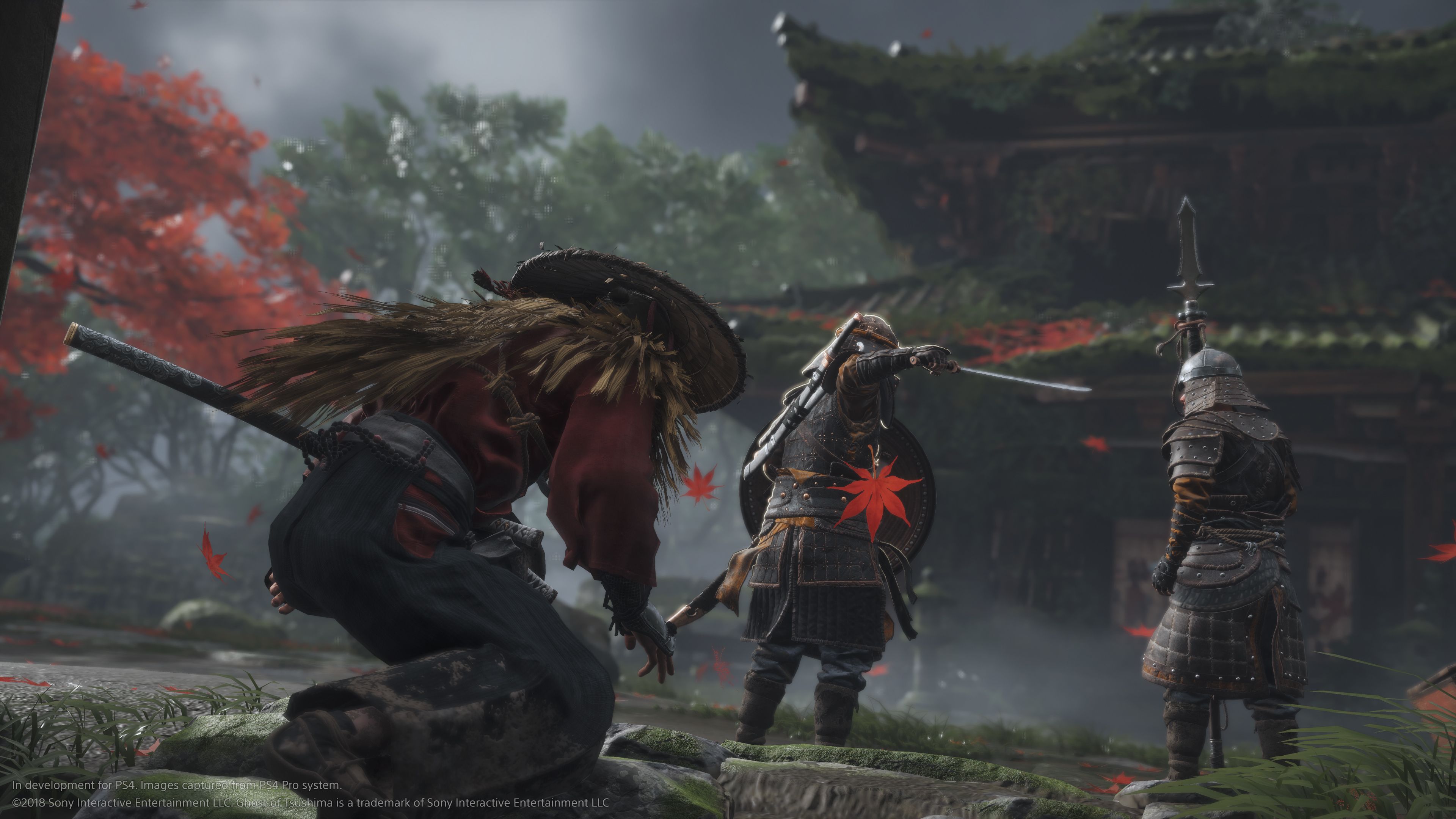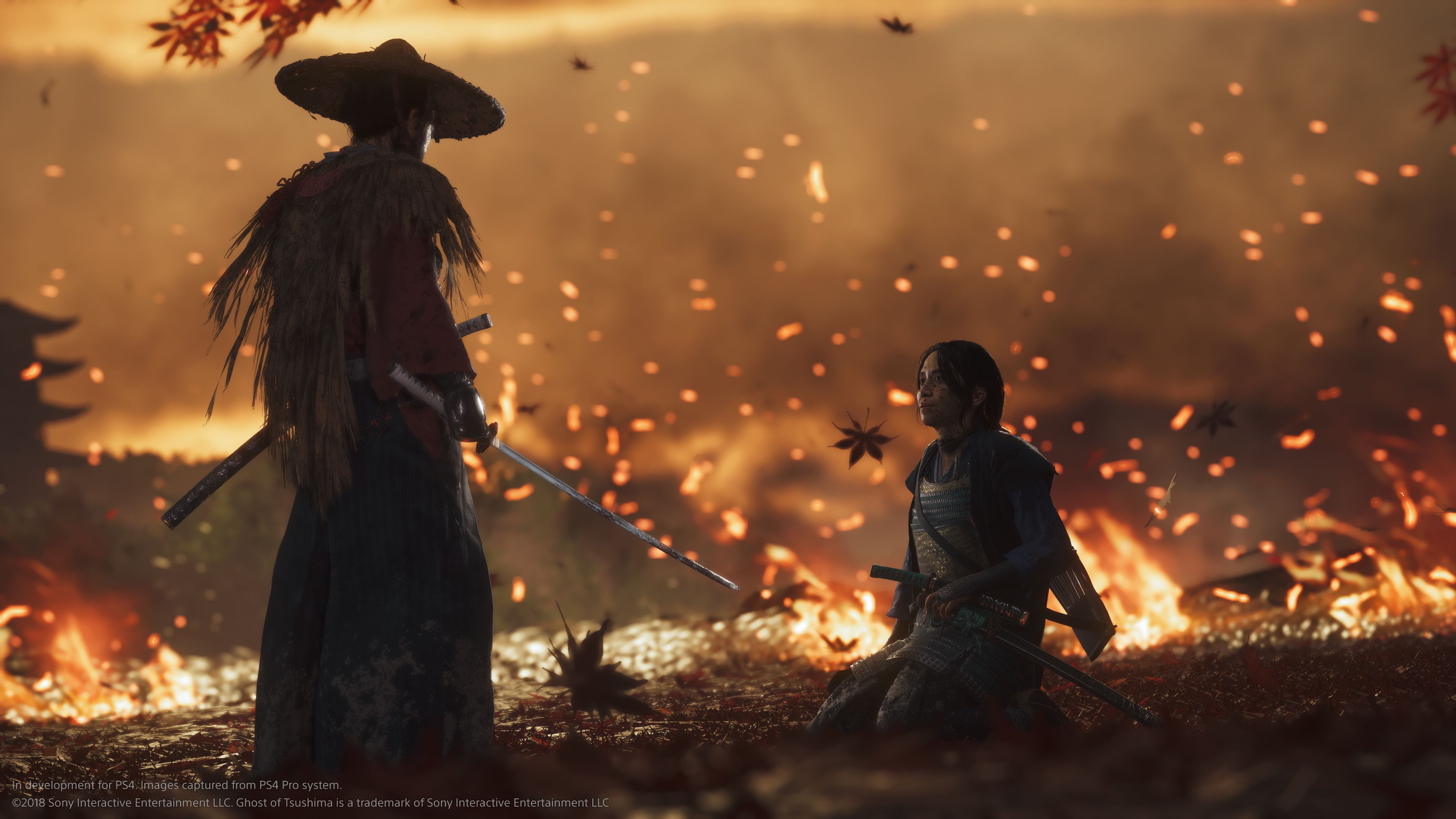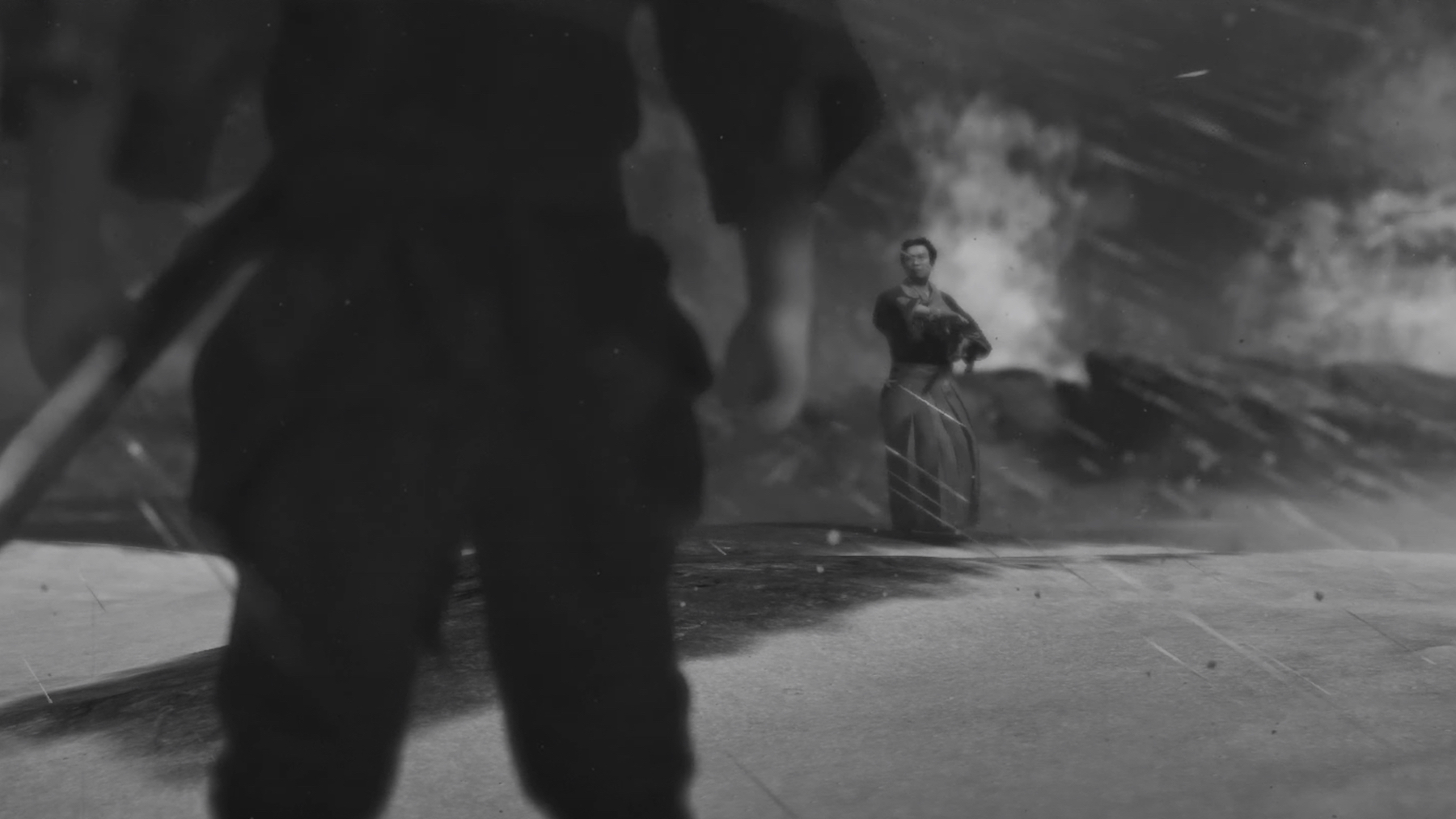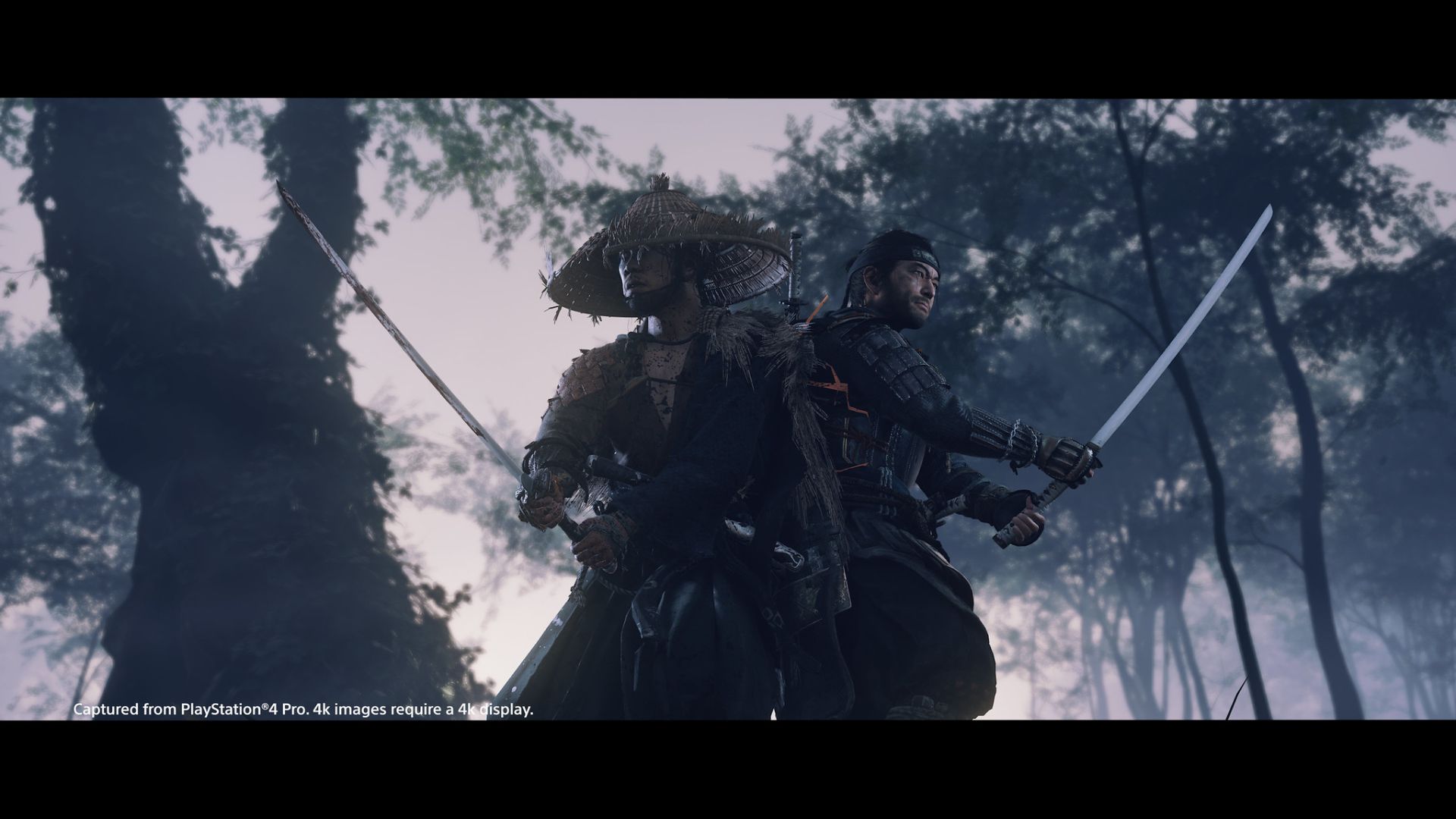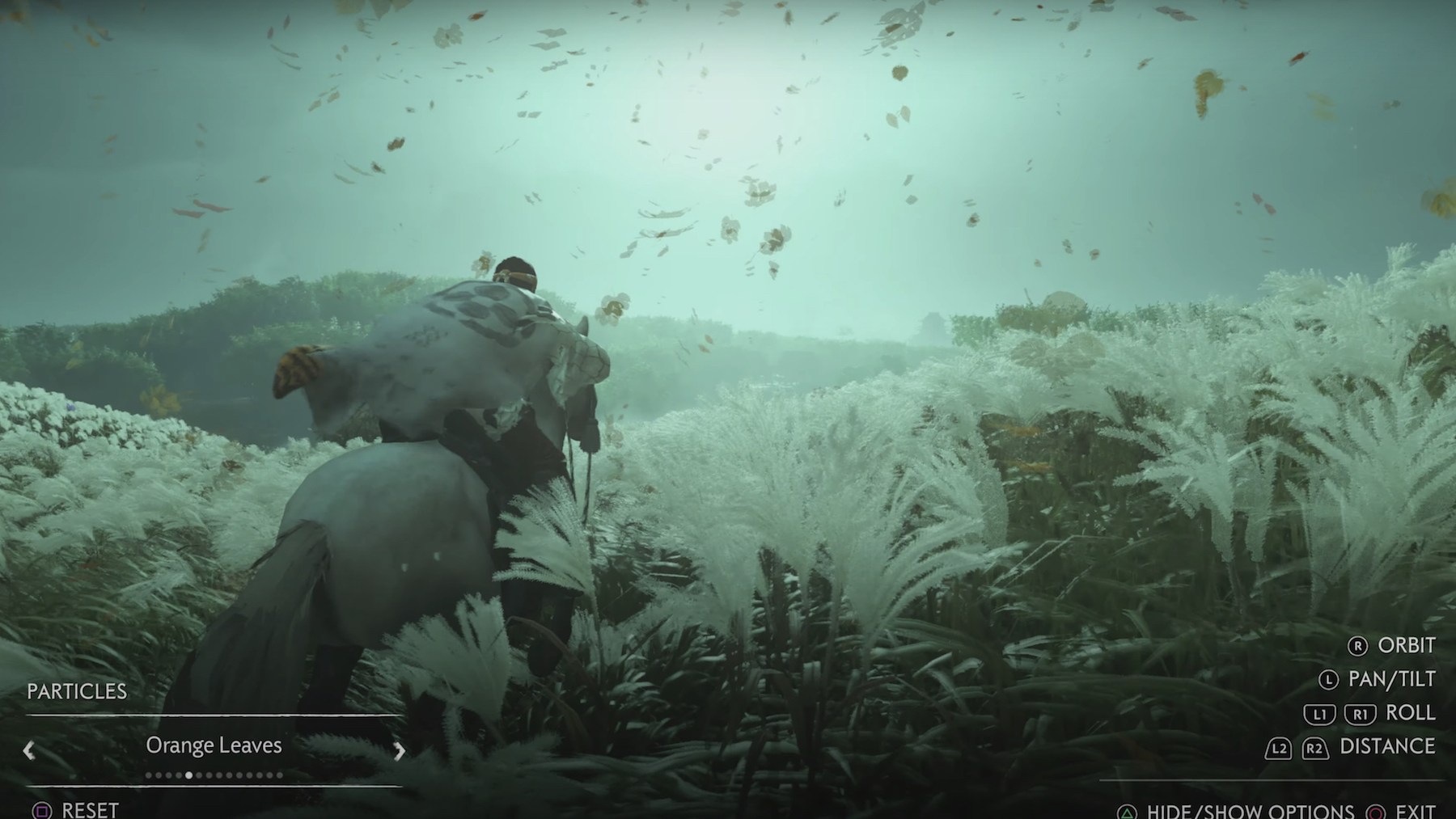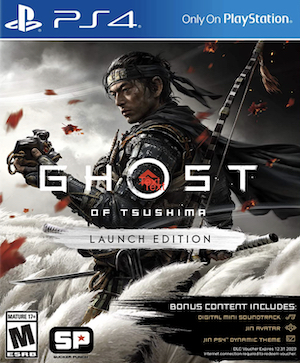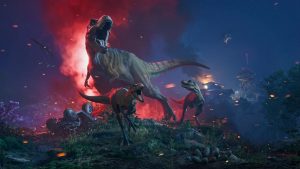
Sony may have set the ball rolling on the PlayStation 5 but it still has some high-profile PS4 exclusives coming up. Sucker Punch’s Ghost of Tsushima is one of the most significant, presenting a gorgeous open world action adventure set during Japan’s Kamakura period. Releasing on July 17th for PS4, here are 15 things you need to know before buying the game.
Story and Setting
Taking place in 1274 on the Island of Tsushima, the story centers on Jin Sakai, a samurai. The Mongol Empire invades the island, usurping territory and taking out the samurai standing in their way (including Jin’s clan). Though trained as a samurai, Jin realizes that using guerrilla warfare and battling the Mongol forces with dishonor and disruption is the key to wiping them out. The story follows Jin’s exploits as he becomes the dreaded Ghost and ideally prevents a full-scale invasion of mainland Japan.
Open World Size and Design
The Island of Tsushima is a massive place. Director Nate Fox told IGN that the map depicted in the State of Play deep dive was “VERY zoomed in” and represented just a small portion of the starting area. As such, there are no waypoints or markers to indicate the next objective. You can use the Guiding Wind, which manifests as gusts of wind that will direct you to any location marked on the map. Otherwise, you’ll want to pay attention to birds and foxes who will lead you to various points of interest. One might even notice smoke that could lead to events like a village being attacked.
Exploration
Even with all the next-gen titles and their visual fidelity, Ghost of Tsushima stands out as incredibly beautiful. Sucker Punch has been working to depict the setting in as authentic a fashion as possible with players exploring rolling plains, bamboo forests, snow-covered mountains and waterfalls. You’ll want to explore around often since it’s possible to miss certain weapons and techniques. There’s a real motivation to meet different NPCs, visit unknown locations and simply bask in the world.
Traversal
Traveling the Island of Tsushima on foot may be scenic but it could take a while. Thankfully, you have a horse to make the process faster. Jin has other movement options available when exploring levels – he can tightrope walk across beams and utilize a grappling hook to swing across gaps. This is in addition to easily scaling walls and leaping across structures to take the high road.
Samurai and Ghost
There are two different styles for Jin to utilize – Samurai and Ghost. These are basically different ways to play the game. Samurai is about close-combat and facing enemies head-on while Ghost is about subterfuge and stealth. Both styles are equally viable and their respective tools aren’t hard-locked. So if you want to use smoke bombs as a samurai, go ahead. Ultimately, it seems a mix of stealth and close combat will be the way to go.
Combat
“Mud, blood and steel” are the three words used to define combat. More lethal precision and less mindless hacking and slashing. Jin can parry enemy attacks and open foes up to fatal deathblows. There’s also Resolve, represented by yellow circles on the bottom left corner. This can be utilized to deal lethal strikes and heal Jin. Of course, you can also side-step to avoid attacks, parry projectiles and pull out the bow to attack enemies from range.
Duels
As witnessed in the 2018 gameplay reveal, you can challenge enemies to duels. An option for a “Standoff” will emerge against any foe but throughout the game, various “expert swordsman” will appear to give you a rough time. Speaking to IGN, Fox said that, “Those fights are incredibly difficult and they’re driven from personality and get solved in the most cinematic way possible, which is also true to fantasy. You need to study your opponent and understand how they attack in order to win.” Combat is challenging enough on its own as per Fox so it should be interesting to see how these different swordsmen will fight.
Stealth Tactics
Those choosing the Ghost path will have a variety of tools available. You can throw kunai and bombs (including sticky bombs and smoke bombs) or toss an item (like firecrackers) to create distractions. Assassinations are a given but you can also chain assassinations to kill multiple foes. Jin is also capable of striking fear into his enemies, prompting them to fall to the ground and accept their deaths, which is awfully considerate.
Armor Sets and Cosmetics
A variety of different armor sets and cosmetics are available to customize Jin’s look. Hakama and jingasa (or camp hats) can be collected along with samurai armor and masks. Armor will give “different mechanical advantages” and though said bonuses have yet to be explicitly outlined, you can expect certain sets to better suit close-combat or stealth.
Techniques
Techniques are the key skills that Jin will learn and Technique Points are used to upgrade them. As Jin becomes more of a legend on Tsushima, he’ll learn new techniques. Sucker Punch has yet to showcase the Techniques menu but it has implied that players can choose how these different abilities “evolve.” This seems to point towards certain Techniques having alternate upgrade paths to change the way they work.
Multiple Difficulty Levels
Ghost of Tsushima offers multiple difficulty levels, namely Easy, Normal or Hard with enemy aggression increasing at higher difficulties. So if you want a nice story experience, then Easy difficulty is the way to go. However, one nice touch is that regardless of difficulty, enemy health will always be the same. As per game director Nate Fox, “This is to maintain the lethality of the katana. Our combat is all about the player’s skill.”
Black and White Filter
With all the inspiration it takes from Japanese cinema, especially Akira Kurosawa’s films, it seems only fitting to have a black and white filter with film grain. So if you want to play through the whole game with this filter on and really feel immersed in a pseudo-samurai flick, then have at it. It especially adds more flavor to the duels with the various expert swordsmen.
Game Length
Sucker Punch Productions doesn’t mince words when it calls Ghost of Tsushima it’s biggest game “by a landslide.” Creative director Jason Connell told IGN that it’s a “lot bigger” than inFamous: Second Son, the studio’s last game, with regards to the world size and amount of content. How long can you expect the game to be? The main story won’t take too much time but mixing in some side content and exploration can easily extend that playtime to over 40 to 50 hours.
Requires 50 GB Storage Space
Despite the massive size of the game, Ghost of Tsushima won’t take up too much space on the PS5. It’s listed as requiring a “minimum” of 50 GB which is still less than games like The Last of Us Part 2 and Final Fantasy 7 Remake, which require 100 GB each. Future updates and content additions could add to the overall size but it should still be manageable by current-gen standards.
Photo Mode
As is the case with several first-party PS4 titles, Ghost of Tsushima will have a Photo Mode. You can adjust options like camera position, color grading, Jin’s expressions and so on. It’s pretty standard stuff but one of the cooler features is selecting wind speed and direction to make photos look a bit more dynamic. You can also choose the kinds of particles in the scene, from yellow leaves and bamboo leaves to orange leaves, present in the image. It’s also possible to change the background music and capture a video, creating a neat little highlight.








